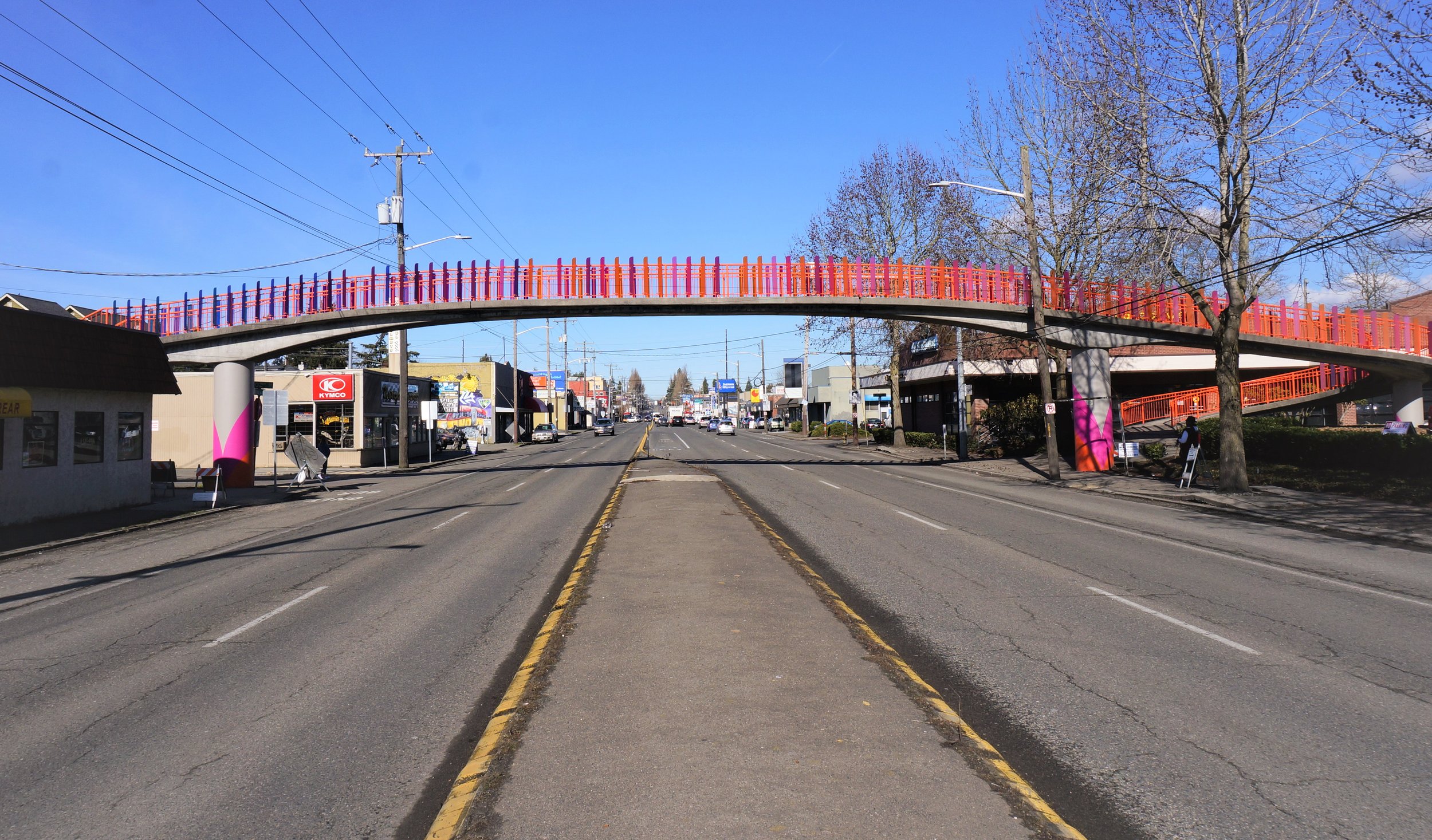Co-Creating the Future of Aurora Avenue
Seattle Department of Transportation (SDOT)
King County Metro (Metro)
Services
Research | Marketing and Advertising | Community Engagement | Multicultural Consultation
Audience
Residents, commuters, small businesses, and historically underserved communities along Aurora Ave N (SR 99).
Challenge
Create a unified corridor vision and make sure everyone, especially historically underserved and non-English-speaking communities, has accessible ways share their vision.
Outcome
Engaged 1 in every 8 members of our 83,000-person target audience - an exceptional rate for public engagement and outreach.
Approach
A phased engagement strategy centered on co-creation, transcreation, and trusted messengers.
The Challenge
The Seattle Department of Transportation (SDOT) and King County Metro (Metro) are creating a new design vision for the Aurora Ave N (SR 99) corridor that improves safety, mobility, and accessibility for all travelers.
Aurora Ave N is one of Seattle’s busiest streets—packed with buses, trucks, people walking and biking, all moving through a dense and diverse part of the city. It serves the region's highest ridership bus route, the RapidRide E Line, and is vital for freight. However, it also has high rates of serious injuries and fatal crashes, particularly affecting pedestrians.
With SDOT and Metro teaming up to rethink the whole corridor, the challenge was twofold:
Create a plan shaped by what the community actually wants and needs
And make sure everyone, especially historically underserved and non-English-speaking communities, has accessible ways share their vision
Our Approach
To meet these challenges, we designed a phased engagement strategy centered on co-creation, transcreation, and trusted messengers. Working across three project phases from 2022 to 2024, we blended digital and in-person outreach tactics to collect feedback and build awareness of proposed changes.
Phase 1 – Listening
Launched a community survey to identify safety concerns and corridor priorities.
Phase 2 – Visioning
Facilitated workshops and a follow-up survey to explore transit improvements and design preferences.
Phase 3 – Feedback
Shared draft concepts and gathered feedback through transcreated surveys, open houses, and targeted outreach via trusted liaisons.
Highlights
Transcreation in 8 languages
10000+ qualitative comments analyzed
10 design workshops hosted
285 businesses visited
The Impact
Community participation and awareness reached broad and deep:
Reach
4.2+ million impressions through multicultural media, digital ads, blogs, and social media.
Engaged 1000+ individuals and organizations through public open houses, business visits, one-on-one meetings, and stakeholder briefings.
Sent 22,000+ postcards and flyers directly to households and families.
Results
Engaged 1 in every 8 members of our 83,000-person target audience - an exceptional rate for public engagement and outreach.



